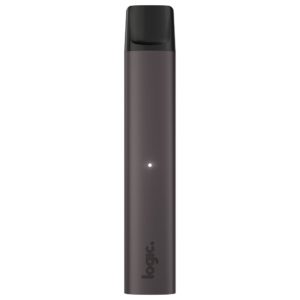
JTI Ukraine tobacco company in 2020 produced 15.9 billion cigarettes at a factory in Kremenchuk (Poltava region), of which 6.04 billion were exported for $ 117.7 million, Director General of Japan Tobacco International (JTI) Ukraine Paul Holloway said in an exclusive interview with Interfax-Ukraine.
He noted that the export of cigarettes by the company remains stable, despite the contraction of the Ukrainian cigarette market. Last year, JTI Ukraine exported its products to 14 countries, including Japan and Mexico.
“We are planning to turn the factory in Kremenchuk into a large export hub. Our factory is very flexible and can produce various types of products – we export not only cigarettes, but, for example, filters, which are then used to produce cigarettes in our other factories. We hope that our factory in Ukraine will continue to increase exports,” the director said.
He clarified that he hopes for further revenue growth from the export of the factory’s products in Kremenchuk. According to him, an important factor that influenced the company’s export plans was its obtaining the status of an authorized economic operator, which will reduce customs formalities when importing raw materials and exporting finished products.
Holloway noted that JTI, which received this status as the first in Ukraine, will receive a number of advantages when passing through customs formalities in Ukraine, including the opportunity to use a special dedicated traffic lane for commercial vehicles.

JTI Ukraine tobacco company plans to invest $45 million in the expansion and renovation of the production facilities of its factory in Kremenchuk in 2021-2022, General Manager of Japan Tobacco International (JTI) Ukraine Paul Holloway has said in an exclusive interview with Interfax-Ukraine.
“This is the modernization of the entire production complex, and not an investment in a separate production line, as it was the case two years ago. The plans for this year are the expansion of the factory, the construction of a new warehouse, the modernization of the tobacco shop, new production lines, the modernization of buildings, structures, infrastructure and much more,” he said.
According to Holloway, the company intends to increase the export of tobacco products, and make it more efficient. An important factor that influenced the company’s plans was its obtaining the status of an Authorized Economic Operator (AEO), which will reduce customs formalities for the import of raw materials and the export of finished products.
The general manager of the company said that JTI, which received this status for the first time in Ukraine, will have a number of advantages when going through customs clearance in Ukraine, including the opportunity to use a special traffic lane for commercial vehicles.
Holloway said that in 2020, the company paid six times more dividends than in the entire history of JTI’s work in Ukraine, and the investments provided for the development of the factory will not affect the further payment of dividends to shareholders. According to him, the factory in Kremenchuk is an independent center of profit, and it will provide money that it earned earlier for investments.
JTI paid out more than UAH 300 million in dividends to shareholders for 2018-2019 and plans to pay about the same amount for 2020.

PrJSC JT International Company Ukraine, one of the largest tobacco companies in Ukraine, in 2020 reduced its net profit by 12.1% compared to 2019 – to UAH 613.75 million.
According to the company’s statement in the information disclosure system of the National Securities and Stock Market Commission, its assets increased by 9.6% over the year, to UAH 4.27 billion, while retained earnings decreased by 10.6% – to UAH 987 million.
The total accounts receivable of the PrJSC by the end of the year decreased by 4.7% – to UAH 983.99 million.
According to the report, at the annual meeting of shareholders on April 21, it is planned to send UAH 298.34 million from the net profit for 2020 to pay dividends, the remaining UAH 315.41 million will not be distributed. The agenda of the meeting also includes the approval of the maximum amount for the purchase of tobacco products from PJSC JT International Ukraine in the amount of UAH 20 billion and the conclusion of contracts for the sale of tobacco products in the amount of UAH 21 billion.
JT International Company Ukraine is a member of Japan Tobacco Inc. JTI). In Ukraine, it owns Kremenchuk tobacco factory (Poltava region).
The most famous brands of JT International Ukraine are Sobranie, Winston, Camel, Glamor, and LD.
Its products are sold in Ukraine and exported to more than 20 countries.

PJSC JT International Company Ukraine, one of the largest tobacco companies in Ukraine, plans to allocate UAH 311.76 million to pay dividends to shareholders for 2018-2019.
According to the company’s statement in the information disclosure system of the National Securities and Stock Market Commission on Tuesday, the shareholders intend to approve the payment of dividends at an extraordinary general meeting scheduled for November 26.
“The retained earnings of the company, formed as a result of activities in 2018 in the amount of UAH 32.05 million, are planned to be distributed as follows: a part of the profit in the amount of UAH 32.05 million will be used to pay dividends to the company’s shareholders, UAH 32.23 per one ordinary registered share,” the company said.
In addition, it is proposed that the retained earnings of JT International Company Ukraine for 2019 in the amount of UAH 279.71 million be partially allocated for the payment of dividends to shareholders – UAH 279.7 million, UAH 281.26per ordinary registered share of the company.
The total number of shares as of November 20, 2020 (as of the date of compiling the list of persons who are notified of the general meeting) is 994,457 common registered shares.
JT International Company Ukraine is part of the Japan Tobacco Inc. group of companies (JTI). In Ukraine, it owns the Kremenchuk tobacco factory (Poltava region).

Japan Tobacco International (JTI) is bringing the new Logic Compact electronic vaporizer to the Ukrainian market, which will be available in 27 countries by the end of the year. This was announced by JTI Ukraine Marketing Director Oleksandr Ponomarchuk during the presentation of Logic Compact in Kyiv.
“We are launching the product in Kyiv. If to look at the market, then electronic vaporizers account for 7.4%, tobacco vaporizers for 8.4%, and cigarettes for 84.2%. Moreover, the e-vape market in Kyiv doubled in a year from $33 million in 2018 to $63 million in 2019. Until 2021, we expect growth in Kyiv to $106 million and in Ukraine in general to $290 million,” he said.
Currently, the product is presented in 20 countries.
According to Ponomarchuk, the largest consumers of Logic products are the markets of Britain, France and Italy, and with the advent of Logic Compact, the largest market has become the Russian Federation.
According to him, the company sees a great potential of the product in the electronic cigarette market in Ukraine.
“We take into account market regulation. We understand that it will come sooner or later. However, the approach is based on potential – if the market is profitable, we go there,” he said.
At the same time, he said that studies have shown that product vapor contains 95% fewer components recommended by the World Health Organization for reducing in cigarette smoke.
The product will be available from November 29 in the Rozetka online store and in the Lavina Mall and River Mall shopping centers. The retail price of the device is UAH 699, a set of two replaceable cartridges costs UAH 99.
Japan Tobacco International is an international division of Japan Tobacco. It produces cigarettes under the brands Winston, Mevius, Camel, Sobranie, Glamor, and LD.

JTI Ukraine, a large tobacco company, after a meeting with Ukrainian President Volodymyr Zelensky and ministers on Thursday has said that it resumes production at its factory in Kremenchuk (Poltava region) following the similar announcement made by British American Tobacco Ukraine.
“After yesterday’s fruitful meeting with the President of Ukraine, we decided to fully resume production of cigarettes at the Kremenchuk factory. From Monday, November 11, the JTI Ukraine factory will resume production at all lines,” Director Corporate Affairs at JT International Ukraine Gintautas Dirgela told Interfax-Ukraine on Friday.
As reported, British American Tobacco Ukraine after a meeting with Zelensky and ministers on November 7 has announced the resumption of production at the B.A.T.-Pryluky plant (Chernihiv region), starting from November 8, 2019.
“We heard words of support and assurances about an early solution to the problem that has damaged our industry and the country’s economy as a whole. Therefore, despite some uncertainty about the fate of bill No. 1049, but relying on the president’s guarantees, we plan to gradually restore production in Pryluky, starting as early as November 8, 2019,” the company said in the statement.
British American Tobacco Ukraine on October 11, 2019 stopped production at B.A.T.-Pryluky plant. The company explained its decision by the adoption by the Verkhovna Rada of bill No. 1049 with the norm on the state regulation of the trade margin on cigarettes. Then the company turned to the State Fiscal Service to withdraw 25 million excise stamps and return UAH 505 million paid for them.
JTI Ukraine, one of the largest tobacco companies in Ukraine, on October 22 said that it refused to pay for 16 million excise labels worth UAH 350 million in connection with the reduction of production over the adoption of bill No. 1049 containing a requirement of regulating the cigarette markup. The company cut production by 73% compared with its plans in the second half of October.
Earlier Philip Morris Ukraine, British American Tobacco, JTI and Imperial Tobacco in Ukraine are mulling the possibility of decreasing production and later closing the tobacco factories on the territory of Ukraine over the adoption of the legislative requirement on the government regulation of markup on their goods by the Verkhovna Rada.
Bill No. 1049, passed at second reading, introducing a single account for paying taxes and duties, the single social security contribution, sets a fixed markup for wholesale and retail traders of tobacco products at 7% and 13% of the maximum retail price per package.